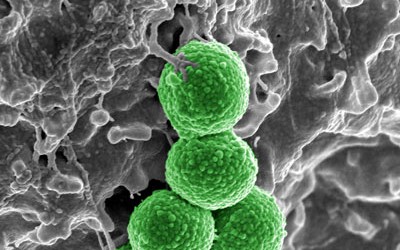Rise of antibiotic-resistant superbugs an ‘apocalyptic threat’ to humanity, say experts
– Posted on February 10, 2013Posted in: Health

As reported by the U.K.’s Guardian, current antibiotic options could become completely obsolete in as few as 20 years, triggering a national emergency that can only be compared to something like a large-scale terrorist attack, or pandemic flu. As doctors continue to indiscriminately dole out antibiotics to their patients, and factory farmers inject their livestock with antibiotics to offset filthy conditions, antibiotic resistance is reaching a critical tipping point.
Based on an annual report she plans to publish this spring, Davies is urging the British Cabinet Office to add antibiotic resistance to the National Risk Register, which highlights pertinent threats that could result in civil emergencies. Quite literally referencing the situation as a potential “apocalyptic scenario,” Davies and others insist that if the issue is not taken seriously and properly addressed by health authorities, patients admitted to the hospital for simple operations could end up dead as a result of infection.
“There are few public health issues of potentially greater importance for society than antibiotic resistance,” explained an urgent Davies to The Guardian. “It means we are at increasing risk of developing infections that cannot be treated … This is why we will be publishing a new cross-government strategy and action plan to tackle this issue in early spring.”
Conventional medical treatments exacerbate superbug problem, admit experts
The report will explain, in detail, how antibiotics spur the mutation of harmful bacteria into more virulent strains over time, making infections increasingly more difficult to treat using drugs. It will also highlight how leftover bacterial colonies that survive drug treatment gradually develop resistance as well, with fewer and fewer new drugs available to treat them.“In the past, most people haven’t worried because we’ve always had new antibiotics to turn to,” added Alan Johnson, a consultant clinical scientist at the U.K. Health Protection Agency (HPA), about the problem. “What has changed is that the development pipeline is running dry. We don’t have new antibiotics that we can rely on in the immediate future or in the longer term.”
Antibiotics are not the only major factor responsible the superbug epidemic, however. According to the same report, technological “advances” have also made available treatment options less effective. Conventional cancer treatments like chemotherapy and radiation, for instance, admittedly weaken patients’ immune systems, making them more prone to infection. And the use of catheters to assist in the elimination of urine can also increase the risk of pathogens entering the bloodstream.
The end result of all this has been a dramatic increase in the prevalence of superbugs all across the board, and particularly at hospitals where sick patients are constantly spreading germs. According to the figures, as many as 80 percent of all gonorrhea cases today are resistant to treatment with tetracycline, which is the standard treatment for this type of infection. Multi-drug resistant tuberculosis (TB) and methicillin-resistant Staphylococcus aureus (MRSA) are both on the rise as well.
Sources for this article include:
http://www.guardian.co.uk
http://www.naturalnews.com/028441_superbugs_infections.html
http://www.naturalnews.com
Source: NaturalNews
By Ethan A. Huff
Related posts:
- US meat and poultry widely contaminated with bacteria including superbugs How would you like a big, juicy burger loaded with onions, mustard, ketchup — and a big helping of drug-resistant Staphylococcus aureus (S. aureus), a bacteria linked to a wide range of human diseases? If you find that dish stomach-churning instead of appetizing, then maybe you should think twice before eating not only meat but chicken and turkey, too, at least in the U.S. According to a nationwide study just released by the Flagstaff, Arizona-based Translational Genomics Research Institute (TGen), meat and poultry from U.S. grocery stores have an unexpectedly high rate of dangerous disease-causing bacteria, including antibiotic resistant superbugs.......
- Scientists fight superbugs naturally with copper Contact with copper can prevent bacteria from exchanging genetic material and even kill them, making it a potent resource in the fight against the spread of drug-resistant superbugs, according to a study conducted at the University of Southampton, England and published in the journal mBio. Bacteria possess an ability known as horizontal gene transfer (HGT), which allows entirely unrelated species to exchange genetic material with each other. Researchers say this ability is responsible for much of the spread of antibiotic-resistant disease in recent decades. The researchers sought to determine whether HGT can take place outside the human body, on settings such as......
- Scientists are calling for urgent action by health authorities worldwide to tackle the new superbug strains The WHO said abuse of antibiotics for humans and use in animals was fostering the emergence of antibiotic resistance and threatening to take the world to an era before the discovery of penicillin in the 1920s. Antibiotic resistance is a type of drug resistance where a microorganism is able to survive exposure to an antibiotic. Genes can be transferred between bacteria in a horizontal fashion by conjugation, transduction, or transformation. Thus a gene for antibiotic resistance which had evolved via natural selection may be shared. Evolutionary stress such as exposure to antibiotics then selects for the antibiotic resistant trait. Many antibiotic resistance genes reside on plasmids, facilitating their transfer. If......



No comments:
Post a Comment